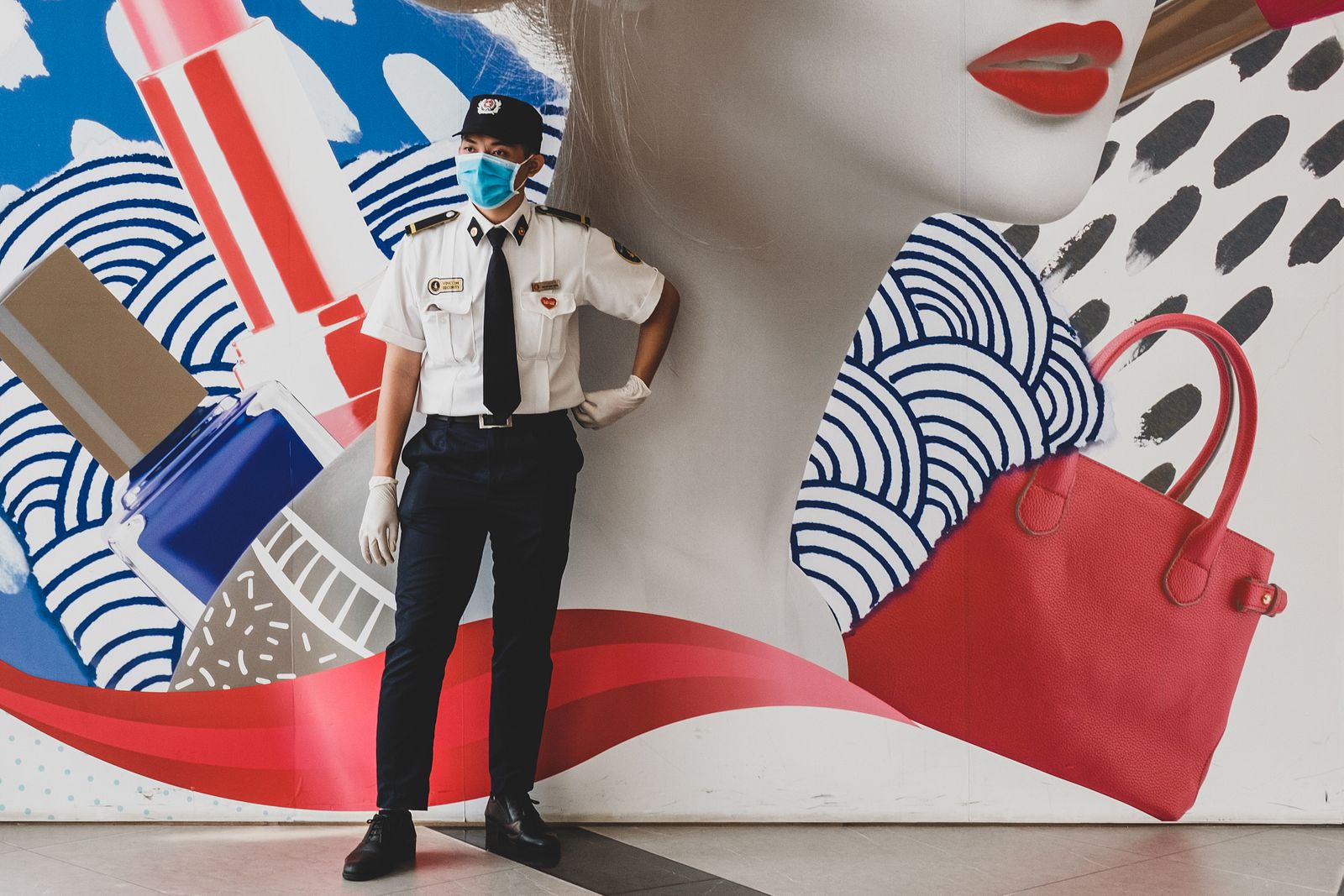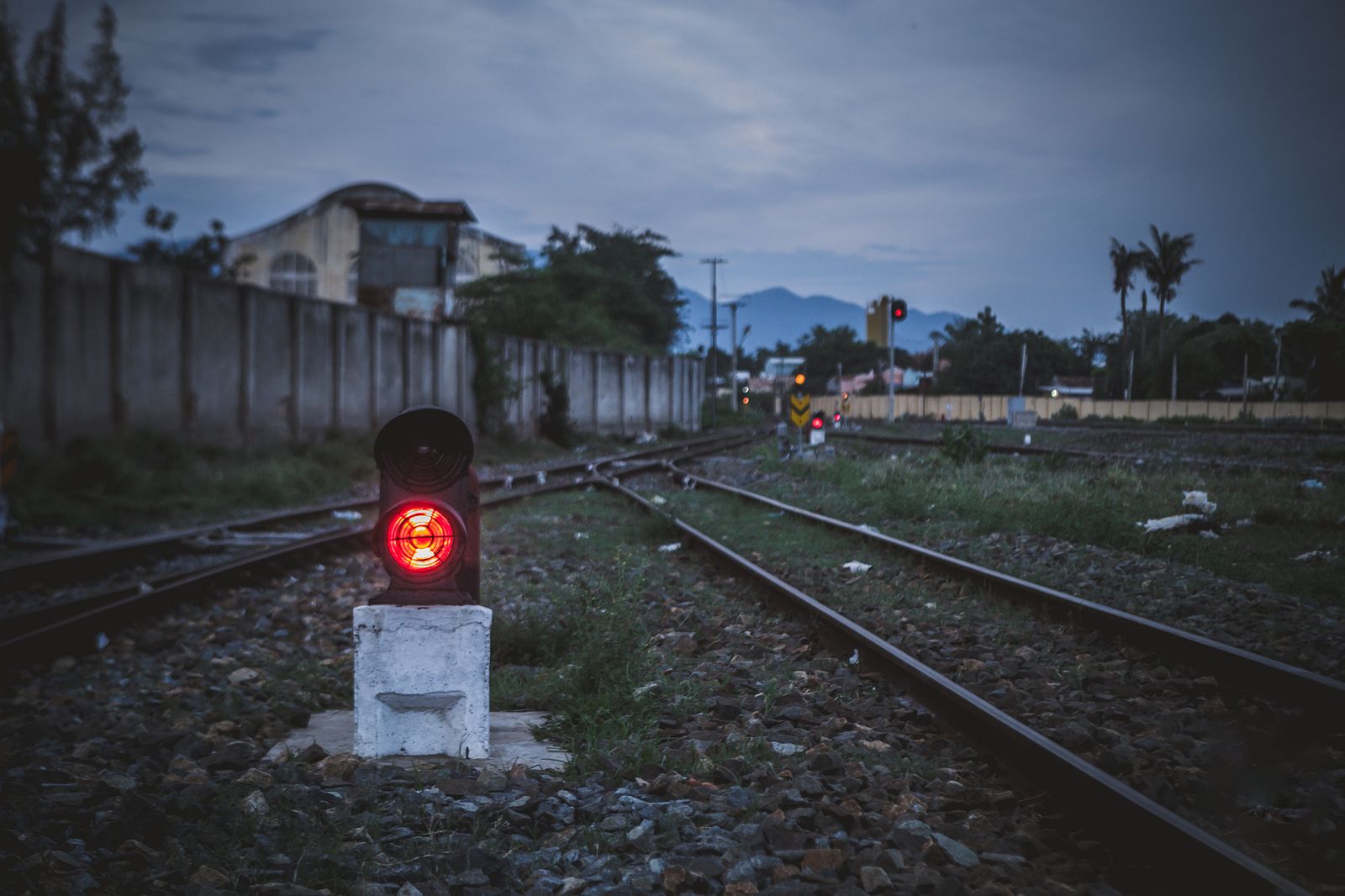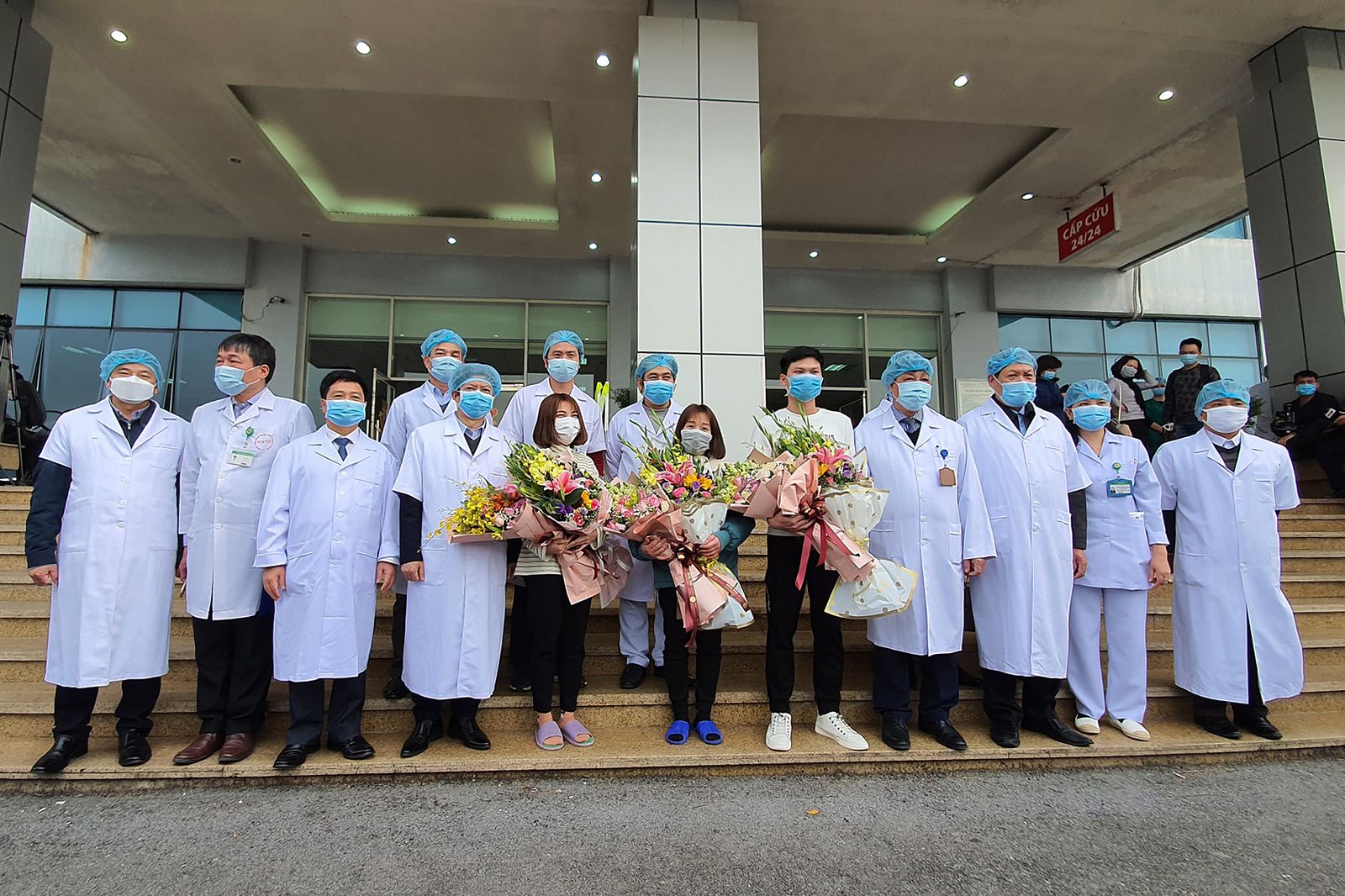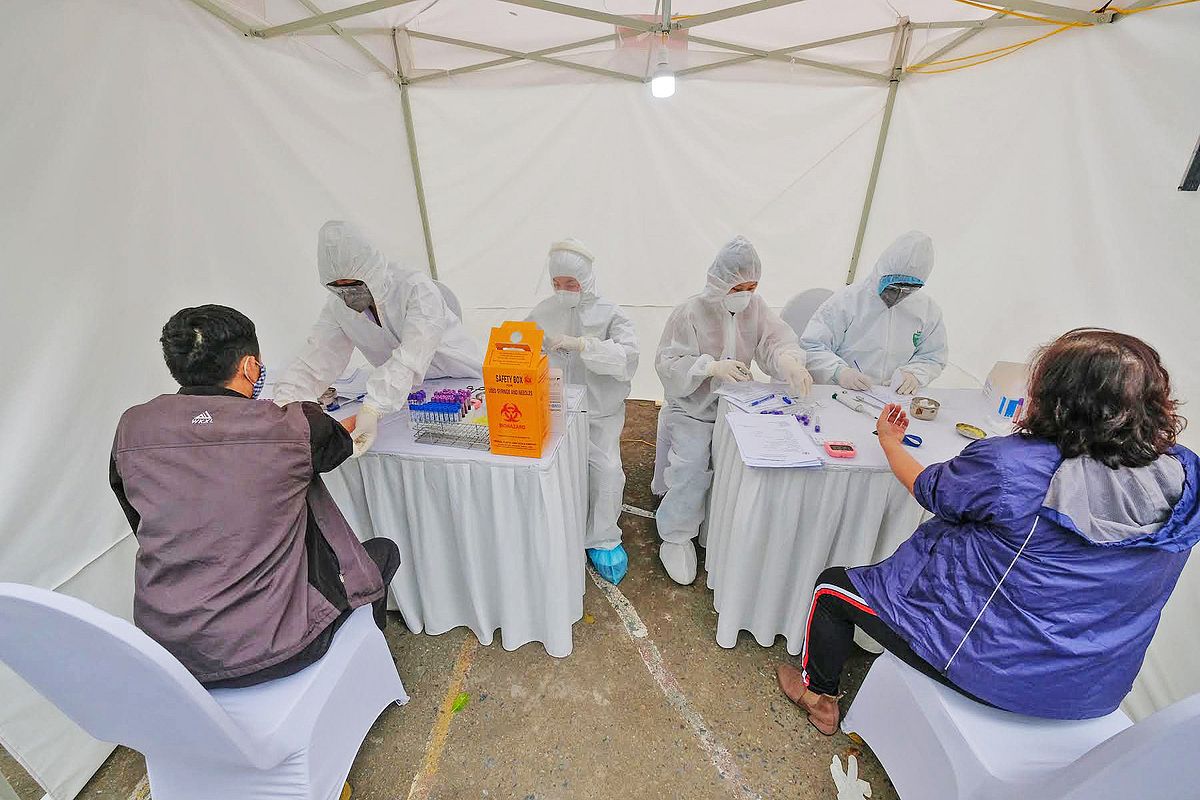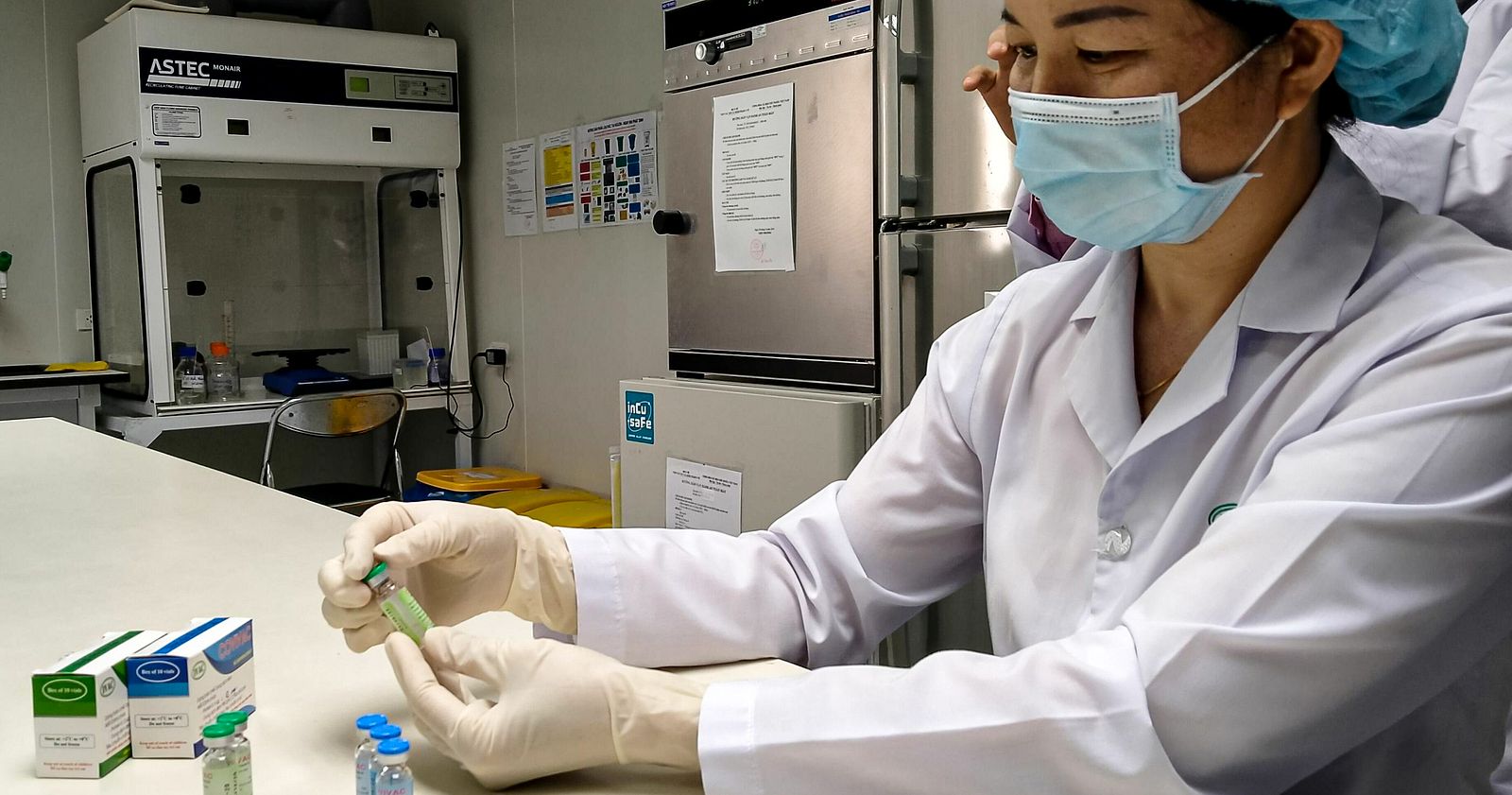Despite tightening restrictions on movement and air travel, Vietnam’s number of Covid-19 cases jumped from 39 last Thursday to 57 by the end of Sunday.
Travel
As the outbreak situation continues to gravely worsen in Europe and the United States, Vietnam announced on Friday, March 14 that it would temporarily refuse entry of visitors from some European countries for 30 days starting from March 15. The ban applies to those who are from, or have been to, nations in the Schengen Area, the United Kingdom and Northern Ireland within the last 14 days. (Editor’s note: Though the official announcement says Northern Ireland, we believe it means Republic of Ireland)
Moreover, Vietnam will also stop giving out visas on arrival for all foreign visitors regardless of nationality. For Vietnamese citizens and other foreigners outside of the aforementioned groups, a 14-day quarantine is now mandatory after arriving.
Government
Within Vietnam, local people’s committees are taking more intense measure to reduce public crowding and infections. Saigon authorities ordered all bars, cineplexes, beer clubs, discotheques, spas and karaoke parlors to stop operating from March 14 until the end of the month. Other venues, including restaurants and hotels, which offer the above-mentioned services will also have to stop such activities.
Hue, Hanoi, Da Nang and Binh Thuan have also imposed similar restrictions, with some even including internet cafes, arcades and gyms. Residents are encouraged to check with local venues to see if they’re affected by the closure before going out.
From Monday, March 16, the government will also make the wearing of masks compulsory in crowded public places such as bus stations, airports, supermarkets, etc. According to a representative from Vietnam Airlines, the carrier will refuse to service passengers not wearing masks at its check-in counters.
In Saigon, meetings at City Hall are now limited to under 50 participants, with mandatory masks. Officials must be seated at least 1.5 meters apart, and close contact is discouraged. Non-essential meetings will now be conducted virtually. Over the weekend, Da Nang decided to establish seven round-the-clock checkpoints at city entrances to check the body temperature of all visitors.
Vietnam also announced that it will pay for the testing, treatment and quarantine of Vietnamese citizens should they test positive for the novel coronavirus, or are suspected of having the virus due to close contact with confirmed cases. Foreigners, however, have to pay for the treatment, though tests will still be free.
New cases
Since our last coronavirus update on Thursday, March 12, Vietnam has reported 18 more cases, a mix of tourists, repatriating Vietnamese citizens and local transmissions. Six of the cases are tourists, including a German (Case 55), a Latvian (Case 54), a Czech (Case 53) and three British (Case 49, 56 and 57).
Of the new cases, seven are local transmissions that are linked to Case 34, a 51-year-old businesswoman who landed in Vietnam from Washington, D. C. via Qatar on March 2. She previously infected Case 36, 37 and 38, who are either her family members or staff. Over the past few days, Case 40, 41, 42, 43, 44, 45 and 48 have all been connected back to her either directly or through intermediate transmission. According to health officials and the local police, tracing back Case 34’s movements and contacts after she left the airport has been challenging because the patient hasn’t been honest about her itinerary.
For the full list of Vietnam’s confirmed cases, visit this website.
Current cases
Meanwhile, most Covid-19 patients in Vietnam are in good health, with the exception of two: a British tourist and a Hanoi resident.
The 69-year-old tourist was on the same London–Hanoi flight as Case 17. He has underlying conditions including type 2 diabetes and hypertension and was confirmed to have the virus on March 8. On Sunday, he presented with fever and difficulty breathing and was thus put on a breathing machine.
The other patient with worsening condition is a 64-year-old woman suffering from a balance disorder. She lives with Case 17 in their home in Truc Bach, Hanoi. She also had difficulty breathing on Sunday.
Both patients have been transferred to the ICU of the National Hospital of Tropical Diseases in Hanoi.
On a lighter note, some patients in quarantine have shown major improvements. Four confirmed cases have tested negative for viral traces for the first time. These include Case 18 (a young man who came back from South Korea); Case 22 and 23 (two British tourists); and another British woman currently in quarantine in Hanoi.

